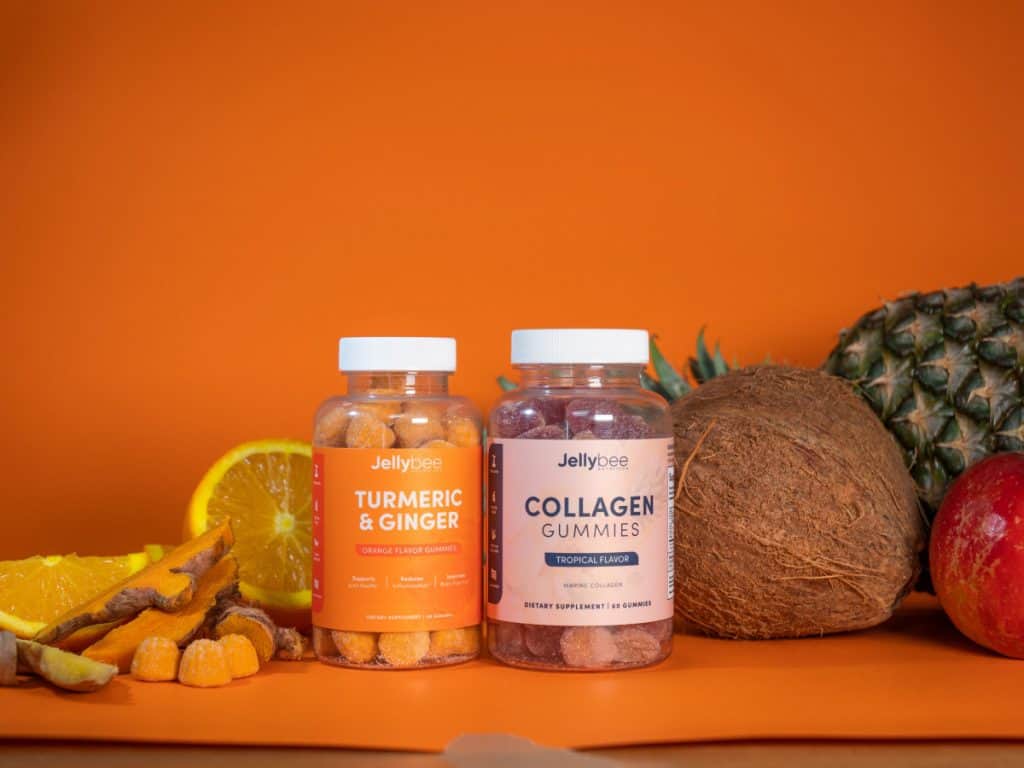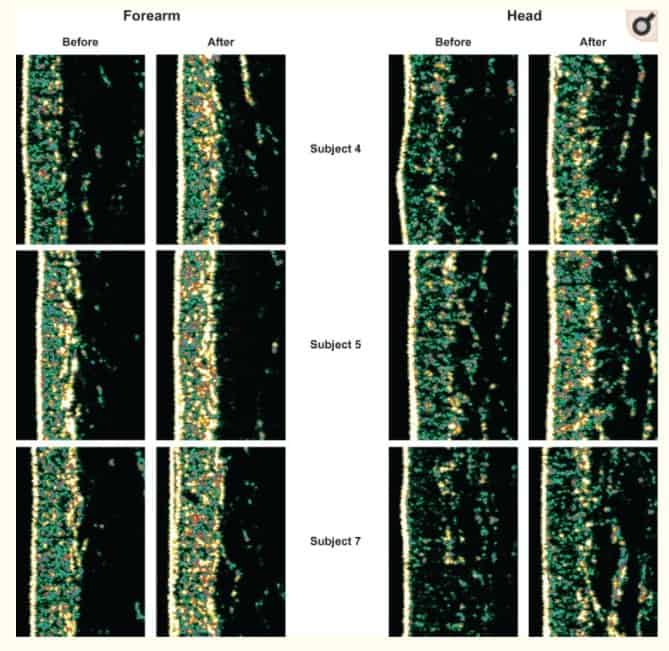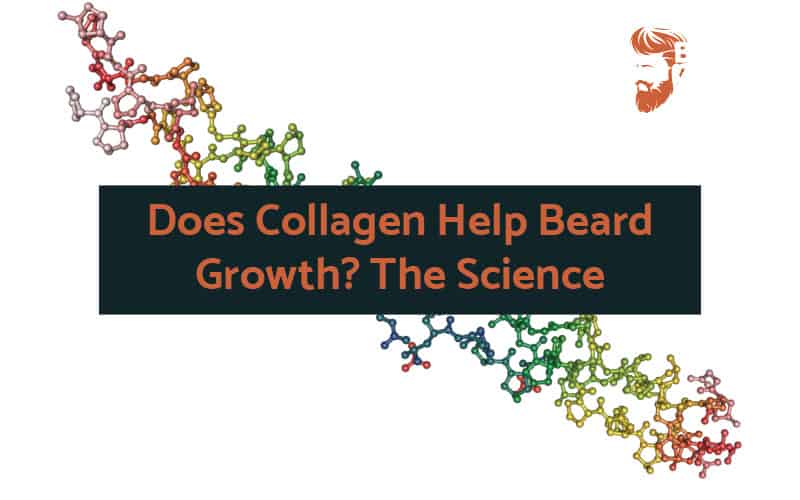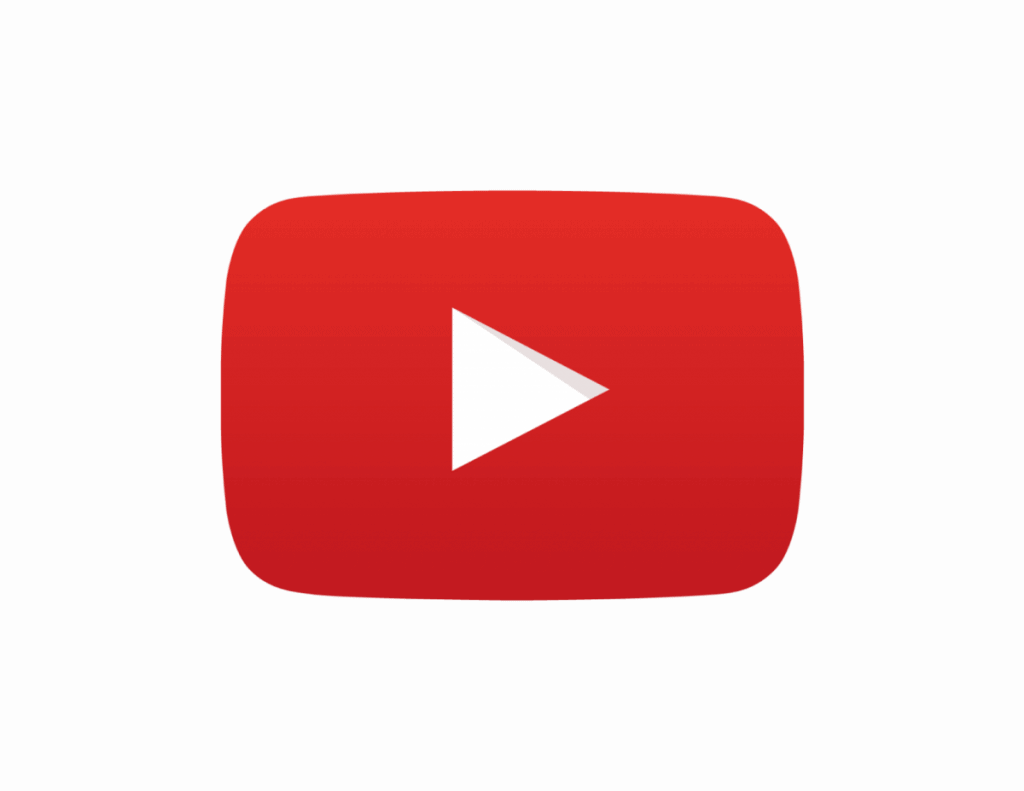Collagen has been receiving a lot of attention. It is the most abundant protein in the body, and its structure means that it is perfect for creating strong muscles, bone, cartilage, and hair. But does collagen help beard growth? My brother recently told me that he had been taking collagen supplementation, and he noticed a big effect on the thickness and strength of his beard. Does the science back this up?
Collagen can help beard growth by providing the amino acids required to produce keratin, resulting in a strong and healthy beard. Collagen is also an antioxidant that can help protect your beard hair against free radical attacks from pollution, smoking and other unhealthy environments.
In this article, we will go over everything you need to know about whether or not collagen helps your beard growth and whether or not it is worth supplementing your diet with extra collagen.
Looking at the science and the research is one of the best ways to get an idea of whether or not collagen is useful for your beard growing adventure. The articles can sometimes be too dense for general reading, so we will summarise them in a friendly way.
What is collagen?
Collagen is the most abundant protein in the body. It has a fibrous structure which means that it is strong when pulled, and the body utilises this molecular structure to make connective tissue. It helps make tissues in your body strong and resilient and also able to withstand stretching.

It is a major component of connective tissues such as tendons, ligaments, skin, and muscles but is also utilised in hair growth.
Our bodies gradually make less collagen as we age. The rate of the decrease can be increased by exposing yourself to excessive sun exposure, smoking, excess alcohol, and not sleeping or exercising. This reduction is most obvious in ageing. Collagen in the deep skin layers changes from a tightly organised network of fibres to an unorganised mat. The reorganisation results in wrinkling at the surface of the skin.
Where can I find collagen?
Collagen is naturally found in animal flesh like meat and fish that contains connective tissue. However, various animal and plant foods contain materials that our bodies can use to create their collagen.
It is common to include bone broth in someone’s diet who wants to increase their collagen intake. You can also increase the amount of meat you eat, and there is a particularly large amount in pork skin.
Foods that contain collagen include:
- meet with connective tissue such as brisket
- bones and skin of fish
- bone broth
- gelatin
you don’t have to consume collagen directly as your body can make it from other foods that you eat.
Foods that contain the amino acids appropriate for making collagen in your body (glycine, proline, and hydroxyproline) include:
- fish
- chicken
- eggs
- dairy
- soy products
- legumes such as lentils
- high zinc-containing products such as nuts, seeds, whole grains, shellfish
- high vitamin C products such as citrus, berries, leafy greens, and tomatoes.
I am not a huge fan of recommending supplementation, but if you are deficient in collagen or the amino acid which build up hair, you’ll certainly have a hard time growing a great beard.
Therefore supplementation is right for people where it has been suggested by a medical health professional.
Supplementation
It is also popular to include collagen supplements into a diet to improve hair, skin, and nails. The online searches for collagen have increased since 2014 – thanks to the marketing of this as a way of keeping your looks youthful.

Collagen supplements are typically found in the form of pills and powders. The powders are typically sold as hydrolysed collagen, which is broken down forms of collagen that is more readily absorbed by the human body. Collagen supplements can also contain amino acids, the building blocks of proteins such as keratin. Some may also contain nutrients related to healthy skin and hair products, such as biotin, zinc, and vitamins C and E.
What the science says on collagen helping beard growth
Your body needs amino acids for various molecular and health reasons. Nine essential amino acids that your body requires can only be obtained from eating them. Collagen does not contain these essential amino acids, so you can get them from other sources.
Not many human studies directly correlate the benefits of taking collagen supplements with growing a beard.
Some randomised controlled trials have found that collagen supplements help improve skin elasticity whilst others have found that the supplements can improve joint mobility and decrease joint pain in athletes or people suffering from osteoarthritis.
Because your beard is primarily made up of keratin, your body is constantly producing keratin from several amino acids you consume in your diet. Some of these amino acids can be found in collagen.
Proline is the amino acid that you need to consume to build keratin in your body. Therefore consuming proline-rich collagen broth and other supplementation could provide your body with enough proline to create stronger hair.
Collagen consumption can result in several beneficial outcomes for your beard beyond creating keratin. Collagen can help protect your hair follicles, prevent the thinning of hair related to hormonal changes and may be able to keep your beard darker for longer.
Ways that collagen may help your beard growth
Here are some science packed ways in which collagen may help your beard growth.
Protects follicles
Collagen can act as a strong antioxidant and stop free radicals from damaging your body. My YouTube video below discusses the importance of consuming free radicals and having a varied and rich diet for your beard.
Free radicals are produced in your body from various external factors such as pollution, smoking, alcohol, stress, and many other health deteriorating environments and factors.
Free radicals are very reactive species created in your body that can damage your cells and cause harm to the fundamental building block of life – your DNA.
Consuming collagen has been shown in test-tube studies to have a powerful antioxidant activity. Interestingly, the collagen was prepared and isolated from sea cucumber.
Prevent the thinning of hair
As we talked about above, collagen is found in your skin. The collagen is concentrated in the middle layer of your skin, which holds the root of the hair.
The amount of collagen reduces during ageing, and the middle portion of the skin becomes less firm and, therefore, much more elastic.
The elasticity means that the hair is not as securely anchored into the skin, which is easier to pull out.
To grow a thick bushy beard, you need to have your beard hairs in the growth phase for as long as possible. Anything that reduces the length of time your beard is in the growth phase can significantly reduce the thickness and darkness of your beard.
Keeping your skin healthy, elastic, and well supplied with nutrients is a way of keeping your beard hairs in your face for longer.
A study showed that daily collagen supplementation improves the amount of collagen in the skin and reduce the signs of skin ageing. In the study, they were given 50 mL of pure gold collagen product for 60 days. In particular, they found that collagen increase the density and skin firmness after 12 weeks of supplementation. The product also contained vitamins and minerals to counteract the signs of ageing.
In the image below, you can see that the density of collagen underneath the skin’s surface was increased in all three different subjects of the study.

May keep your beard dark
Keeping your beard as dark as possible will help improve its thick and dense look.
Because collagen is an antioxidant, it can fight cell damage caused by free radicals building up in the hair and killing off melanin’s colour building blocks.
Generally, men firstly experience their ageing process through grey hairs on their beards. In general, most men show signs of ageing in their 30s. For some, it might happen as early as the age of 23.
Several studies have shown signs of a connection between smoking and the early occurrence of grey hair. A study published in 2013 looked into smokers’ hair and investigated the question: does smoking cause premature hair greying?
This study was conducted in a non-clinical setting and included 207 participants. The participants were classified into two groups: premature hair greying and normal hair greying stop premature hair greying was defined for the case of this study as the appearance of grey hair before the age of 30.
The study found a significant relationship between the onset of grey hair before the age of 30 (premature greying) and smoking cigarettes.
The prevalence of smokers in the premature hair greying group was higher at 40.2% versus 24.7% for normal hair greying. By using some complicated mathematics, smokers were found to be 2 ½ times more prone to develop premature hair greying.
Anything your body can do to help reduce the amount of oxidative stress in your body is a good thing, and collagen may be able to reverse some of the effects of smoking and other poor lifestyle choices.
Does collagen cause facial hair growth?
There is no evidence to suggest that the increase of collagen in your diet will result in facial hair growth. The beard hair on your face has to be stimulated by testosterone and DHT in your body. These hairs on your face must also have a lot of hormone receptors at the base, which then detects the DHT and signals to the hair to turn into thick dark terminal hairs.
Although collagen can provide some non-essential amino acids to your hair growth, it does not speed up or cause the hairs to turn from vellus hairs to terminal hairs.
However, when it eventually happens, collagen will help make sure that your body has everything it needs to grow as healthily as possible and minimise the number of free radicals in the body, damaging your hair and hair follicles.
Does collagen affect testosterone?
There certainly seems to be a link between collagen and testosterone. Studies have demonstrated the reduction of collagen due to testosterone deprivation, but no studies link a high amount of collagen with any effect on testosterone.
One study from the University of Southern California reported that human collagen could help produce testosterone. The scientists used collagen in a soup of nutrients, jeans and other ingredients to transform cells from one form into another. Collagen is commonly used as a cell growth matrix, and they found that the addition of collagen produces testosterone from the cells.
The main researchers said that human collagen was the secret source for producing testosterone. They tried many other different variations of collagen, and human testosterone was the key to making it work.
Since this study, I cannot find any others which have extended this work and tried to replicate the effects in human participants.
Is too much collagen bad for your beard hair?
Consuming too much collagen is not a bad thing for your beard. Your body will take on as much collagen as it needs to perform its normal tasks and metabolic processes.
Like other dietary supplementation, if you consume too much collagen, you will excrete it out of your body. Therefore it is important not to consume supplements if you do not need them. It is a waste of money, and you wash it down the drain once your body has dumped it into the toilet.
Summary
This article has gone over everything you need to know about whether or not collagen helps your body grow a beard.
Keratin is the protein that gives hair and fingernails their strength. To get keratin, your body needs protein. Collagen is a protein that the body uses for many things, including growing a beard. Collagen is also an antioxidant that can help protect your beard hair against free radical attacks from pollution, smoking and other unhealthy environments.
Science has not been able to prove a direct link between taking collagen and better or thicker beard growth but the preliminary results have shown that it is possible the amino acids provided to the body as well as the antioxidant power may help with your beard growing adventure.



